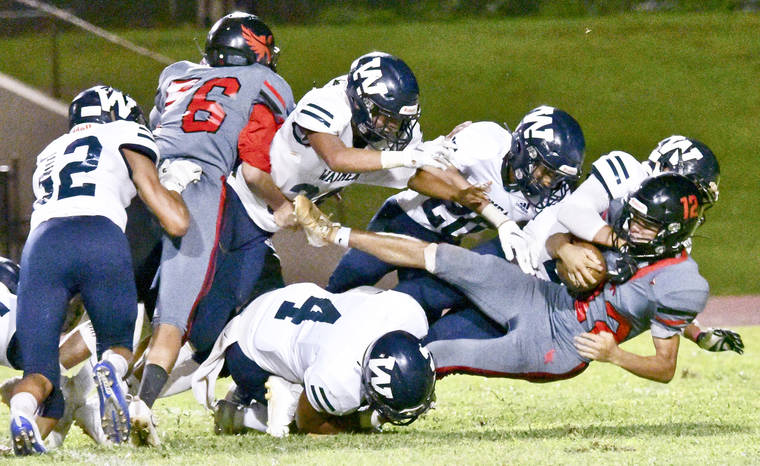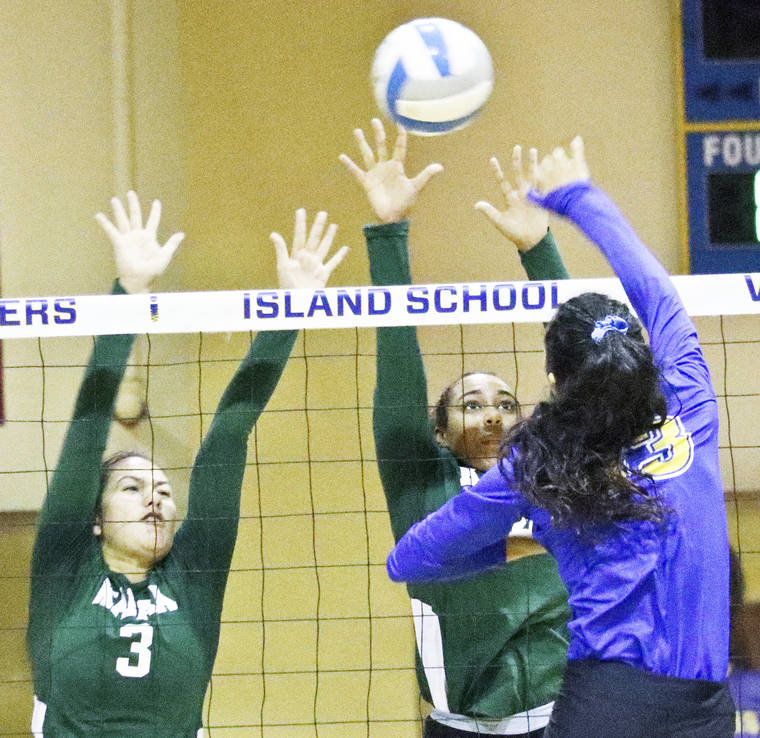Mayor Derek Kawakami remained cautiously optimistic during Friday afternoon’s Zoom webinar about the continuation of Hawai‘i High School Athletic Association spring sports.
The Zoom conference, which included several high-ranking officials such as mayors and athletic directors, discussed how to safely reopen interscholastic competitions.
“We are cognizant that the students of Kaua’i have a small window of opportunity to a higher education,” Kawakami said. “Some of these students even want to play professionally. We want to come back from the pandemic holistically so our community can remain open as much as possible, but we still have a lot of work to do.”
During Friday’s webinar, Hawai‘i officials shared their opinions and expertise on the systematic process of safely reopening HHSAA spring events.
As of press time, there has been no formal announcement made about the continuation of these sanctioned events.
Wendy Anae, former athletic director at Kahuku High on O‘ahu and now in the same position at Timpview High School in Provo, Utah, shared her insight on how the state of Utah has carried on with school-sanctioned sports.
“All fall sports were completed successfully, with only a few hiccups by games being canceled with three players testing positive, and everyone would go into shut down or quarantine,” Anae said. “Some games were canceled, but we were able to successfully complete a fall season and hold championships.”
According to Anae, the state of Utah elected to shut down games to spectators for a period of time before bringing them back in a limited capacity.
Football, which would often have over 100 participants when you include sophomores, junior varsity and varsity, took proper precautions in a scenario where a player would test positive for COVID-19.
“All teams that had a positive test would go into quarantine and would isolate,” Anae said. “We had group discussions at the USHAA to allow sports to happen by following strict guidelines and protocols, and follow them to a tee.”
Anae cited a study that said more students contracted COVID-19 during face-to-face learning than they did during athletic competitions or practices.
“Someone mentioned that most of the positive cases and contact tracing did not happen within the athletic facilities,” Anae said. “More incidents happened within the classroom than it did with the other teams.”
Hawai‘i is one of only three states in the country to not have begun school-sanctioned sports, and had mayors, athletic directors and HHSAA Executive Director Chris Chun discuss the prospects of moving forward with sanctioned events in March.
“The Hawai‘i High School Athletic Association (HHSAA), in conjunction with its member leagues — the Big Island Interscholastic Federation (BIIF), Interscholastic League of Honolulu (ILH), Kaua‘i Interscholastic Federation (KIF), Maui Interscholastic League (MIL) and the O‘ahu Interscholastic Association (OIA), — have collectively agreed that, effective immediately, all interscholastic practices will also be added to the list of suspended activities, in addition to the competition, in an effort to minimize the potential community spread of the COVID-19 virus. The COVID-19 public-health threat to be evaluated weekly by the HHSAA executive board.”
The HHSAA announced Jan, 2 of their intention to forgo the March 2021 state championships under a modified calendar affecting air riflery, basketball, bowling, cheerleading, cross country, outrigger canoe paddling, soccer, swimming and diving and wrestling.
The decision was based on several factors, including, but not limited to, travel restrictions, and that leagues were already conducting shortened seasons, according to the HHSAA press release issued in early January.
Dr. Elizbeth Ignacio, assistant professor at John A. Burns School of Medicine at the University of Hawai‘i at Manoa, knows everyone wants to start high-school-sanctioned activities, but still remains on the side of caution pushing forward.
“It would have been ideal to start from last year, and the conversation would be about staying open and moving forward, but the reality is reality,” Ignacio said. “It does appear that we are in the third surge with (new COVID-19 cases) hovering around over 300 a day islandwide.”
Ignacio shared her concerns about moving forward.
“What people need to understand is that here in Hawai‘i, we are in a critical situation,” Ignacio said. “We can’t exhaust all of our medical resources, not only in terms of hospital beds but also treatment made available.”
With Kaua‘i’s four-tier approach, Kawakami said Kaua‘i continues to create an environment where the economy can continue to operate.
Currently, the maximum number of participants depends on whether the sport is indoors or outdoors, and regulated versus unorganized.
Currently, Kaua‘i remains in Tier 4, which is the least-restrictive tier.
Organized sports such as Kaua‘i Senior Softball have permits to utilize parks, and presented a COVID-19 plan to the county Department of Parks and Recreation for review and approval.
The COVID-19 plan needs to show how organizers will keep players, coaches and any spectators in compliance with pandemic rules, such as wearing masks and practicing social distancing.
According to the county, in a written statement, they chose to opt out of the state Safe Travels program to remain in Tier 4 and allow businesses and activities to remain active and continue to allow the students to go to school and play non-school sports.
Kawakami noted in the webinar that the majority of Kaua‘i cases are travel-related, and local businesses and activities were not the sources of the COVID-19 infections. So it didn’t make sense to restrict those activities when they were unrelated to the increases in cases on this island.
“All we’ve done is continue to create an environment where we can operate business and activities as normally as we can during a global pandemic,” Kawakami said.
•••
Jason Blasco, reporter, can be reached at 245-0437 or jblasco@thegardenisland.com. Reporter Sabrina Boden contributed to this report.








So competition and practices are cancelled and also the sports listed were cancelled. Spring 2021. The case count has risen for the state, COVID-19. If you noticed. Just checking.